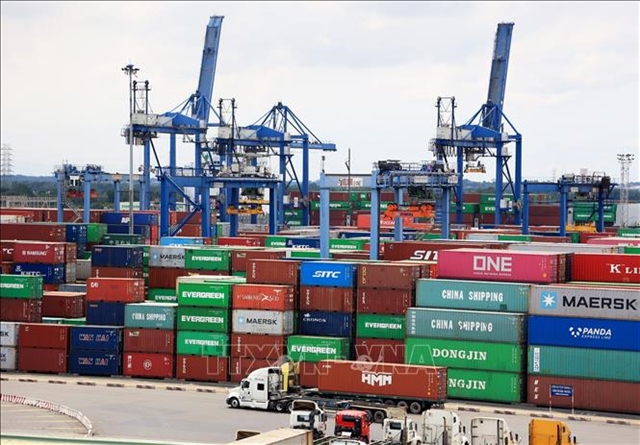 Economy
Economy
.jpg)
Nineteen State-owned groups and corporations under the Commission for the Management of State Capital at Enterprises (CMSC) expect to incur losses worth some VNĐ26 trillion (US$1.1 billion) this year due to coronavirus crisis.

|
| Workers at PetroVietnam carry out technical checks. PetroVietnam is among nineteen State-owned groups and corporations under the Commission for the Management of State Capital at Enterprises (CMSC). — VNA/VNS Photo Hà Thái |
HÀ NỘI — Nineteen State-owned groups and corporations under the Commission for the Management of State Capital at Enterprises (CMSC) expect to incur losses of some VNĐ26 trillion (US$1.1 billion) this year due to the coronavirus crisis.
Their revenues for the whole year were forecast to slump by VNĐ280 trillion compared to the initial target, while their State budget contributions were likely to drop VNĐ33 trillion, according to the Ministry of Planning and Investment (MPI).
In the first quarter of this year, the total revenue of the 19 State groups and corporations fell an estimated VNĐ27 trillion compared to the same period last year.
FDI enterprises were also heavily affected, mainly due to a sharp decline in consumption markets, according to the MPI.
The MPI said 53.8 per cent of FDI enterprises were unable to export in Q1.
“Việt Nam's effective control of the COVID-19 pandemic has helped limit the spread of the disease in the community,” said Minister of Planning and Investment Nguyễn Chí Dũng.
“This will help restore confidence among investors in the Vietnamese market and create opportunities for the economy to recover,” Dũng said.
Dũng also pointed out some potential risks that businesses must be aware of, which included the complicate developments of COVID-19, especially in countries that are important markets for Việt Nam such as the US, Japan and Europe.
“Therefore, the discontinuity of the supply chain and value chain will not be settled the near future and will continue to exert great influence on enterprises, especially those with inputs and outputs heavily dependent on international markets and deeply involved in global value chains such as textiles, footwear, tourism, aviation, restaurants, hotels and logistics,” Dũng said.
“As a result, many restaurants and hotels have been put up for sale during this difficult time.”
According to the MPI, if the pandemic became more complicated, there would be more mergers and acquisitions. Businesses with certain market shares may be swallowed by foreign investors.
After the pandemic, large FDI enterprises were likely to restructure the system of raw material providers, selecting new investment locations meeting their requirements for science, technology and biological environment and healthcare services.
This would be a challenge for Việt Nam in the future, the MPI said. — VNS
.jpg)



